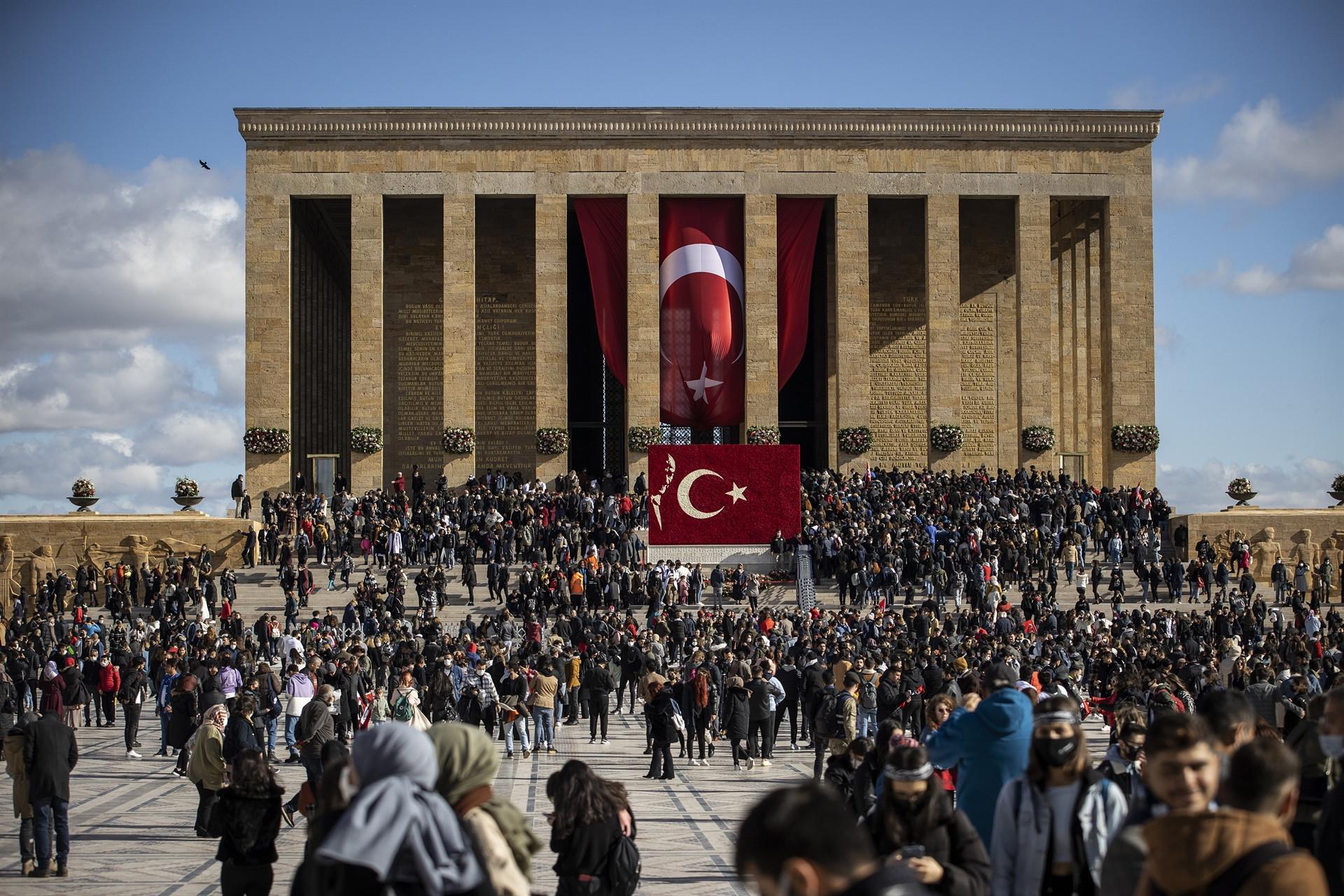
Turkey on Nov. 10 commemorated the 83rd anniversary of the passing of Mustafa Kemal Atatürk, the leader of the country’s War of Independence and founder of modern Turkey, with the nation flocking to his mausoleum, Anıtkabir, in the capital Ankara and Dolmabahçe Palace, where he passed away in Istanbul in 1938.
As is customary, daily life stopped at 9:05 a.m. local time (0605GMT), sirens wailed to mark the exact moment of Atatürk’s death at the age of 57 and millions of people across the country observed two minutes of silence.
Somber ceremonies were held, wreaths were laid at the monuments, honoring the leader across the country.
All vehicles stopped on the three bridges of Istanbul and drivers got off for a standstill at 09:05 a.m. to show respect to the leader.
Long lines of tearful mourners paid their respects at Atatürk’s mausoleum in Ankara and the Dolmabahçe Palace in Istanbul.
“Bless his soul. Now it is our duty to protect the republic he established,” Kudret Yılmaz, an Anıtkabir visitor, told state-run Anadolu Agency.
The number of visitors will be announced in the coming days.
Thousands took to the streets of all 81 provinces, with some wearing t-shirts bearing Atatürk photos, waved flags and commemorated the founding leader early Nov. 10.
Some Turkish citizens showed their love for Atatürk by visiting the house in the Greek city of Thessaloniki where he was born in 1881, which was then part of the Ottoman Empire.
“I came from Istanbul just to commemorate him on the anniversary of his death,” said a young Turkish woman.
“I love him so much,” said another.
An official ceremony was held at Anıtkabir in the capital Ankara. President Recep Tayyip Erdoğan and a delegation, including Parliament Speaker Mustafa Şentop as well as leaders of opposition parties, attended the event where a wreath was laid at his grave.
Also, a commemorative concert conducted by the Atatürk Supreme Council for Culture, Language and History, was held in the Presidential Concert Hall in the capital Ankara.
Atatürk’s military education started in 1893 when he enrolled in a military school in Thessaloniki. Along with his military skills, Atatürk also learned the French language.
He continued his education at the Military School of Istanbul. With his extraordinary skills, Atatürk quickly climbed up the military ranks, becoming a staff captain in 1905.
The year 1911 marked a significant point in Atatürk’s life as he fought the Italians in Tripoli and won a decisive victory, proving his skills in the military field.
In 1914, when Atatürk was a military attaché in Sofia, World War I began and the Allies deployed soldiers on the Gallipoli peninsula as the battle of Dardanelles (Çanakkale) began.
Atatürk and Turkish soldiers made history by showing an incredible resistance. Atatürk’s order to his soldiers in the war still echoes in the hearts of all Turks: “I don’t order you to attack, I order you to die!”
He continued to captivate hearts during his services in the northwestern province of Edirne and the southeastern province of Diyarbakır in 1916, earning the title of major general that same year.
Following the occupation of Istanbul by the Allies in 1919, Atatürk went to the northern province of Samsun as the inspector of the ninth army, completely changing his life and, eventually, Turkey.
On April 23, 1920, the Grand National Assembly of Turkey was established and Atatürk was elected as the head of the government and speaker of parliament, which enabled him to adopt laws essential to beat occupant forces.
The incredible achievements on the battlefield led to Turkish independence, and the Republic of Turkey was founded on Oct. 29, 1923.